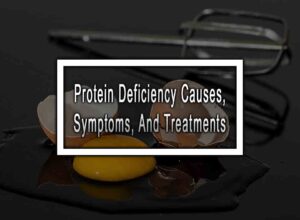Here Are Some Benefits Of Thiamine
Thiamine, also known as vitamin B1, is an essential nutrient that the human body requires for several vital functions. It is commonly found in foods like nuts, legumes, and whole grains. It is a water-soluble vitamin that plays a significant role in glucose metabolism and energy production. Although the human body requires only small amounts of thiamine, it is essential for various bodily functions. In this article, we discuss some benefits of thiamine.
Improved cognitive function
Thiamine is crucial for the proper functioning of the human brain. It supports healthy cognitive function and helps maintain the integrity of the nervous system. Thiamine is a coenzyme for enzymes responsible for energy metabolism in brain cells, and its deficiency leads to impairment of cognitive function and memory. According to a study published by the journal Nutrients, thiamine supplementation improves attention and memory performance in adults. It also suggests that increased thiamine intake may slow down age-related cognitive decline.
Enhanced cardiovascular health
Thiamine plays an essential role in maintaining heart health. It helps break down carbohydrates and amino acids, which are vital sources of energy for the heart. Additionally, thiamine aids in the strengthening of heart muscles and improving blood circulation, thereby reducing the risk of cardiovascular diseases. Studies suggest that thiamine supplementation may have a positive effect on reducing systolic blood pressure and arterial stiffness in subjects with hypertension.
Improved eye health
Thiamine is also essential for maintaining healthy eyesight. It helps prevent age-related macular degeneration and vision loss. According to a study published in the British Journal of Ophthalmology, thiamine supplementation reduces the risk of developing advanced age-related macular degeneration by almost 35%. Thiamine acts as an antioxidant that protects the retina from oxidative damage, which can lead to vision loss.
Boosted immune system
Thiamine plays a vital role in supporting the immune system’s healthy function. It helps stimulate the production of white blood cells, which are responsible for protecting the body against bacterial and viral infections. Studies suggest that thiamine supplementation may improve immune function in healthy adults and patients with chronic hepatitis C.
Reduced risk of Alzheimer’s disease
Thiamine plays a crucial role in preserving brain function, reducing the risk of Alzheimer’s disease and other forms of dementia. Research suggests that thiamine supplementation helps improve cognitive function and neural activity in patients with Alzheimer’s disease. Thiamine supplementation has been found to reduce the rate of cognitive decline in the early stages of Alzheimer’s disease.
Improved mood and reduced stress
Thiamine plays a crucial role in regulating mood and reducing stress levels in the human body. Thiamine deficiency can lead to irritability, depression, and anxiety. Studies suggest that thiamine supplementation can reduce the severity of depressive symptoms and improve mood and quality of life in patients with major depressive disorder.
Conclusion
In conclusion, one of the benefits of thiamine is an essential nutrient that plays a crucial role in maintaining overall health and wellness. It is involved in various bodily functions, including energy production, cognitive function, cardiovascular health, eye health, and immune system function. Thiamine deficiency can lead to several health problems like Beriberi, Wernicke-Korsakoff syndrome, and others. Therefore, it is essential to ensure adequate consumption of thiamine through a balanced and healthy diet or supplements. While thiamine supplementation may be necessary in some cases, it is always wise to consult a healthcare professional before starting any supplement.
Benefits Of Thiamine FAQ
Here are the most common questions about the benefits of thiamine.
Which foods are good sources of thiamine?
Foods that are rich in thiamine include:
- Whole grains (such as brown rice, oats, and barley)
- Legumes (such as lentils, beans, and peas)
- Nuts and seeds
- Yeast
- Meat (such as pork, beef, and liver)
- Fish (such as salmon and tuna)
- Dairy products (such as milk and cheese)
What is thiamine deficiency?
Thiamine deficiency is a condition that occurs when a person does not consume enough thiamine in their diet. This can lead to several health problems, including Beriberi and Wernicke-Korsakoff syndrome.
Who is at risk of thiamine deficiency?
People who consume a diet that is low in thiamine (such as those who consume large amounts of processed foods) are at risk of thiamine deficiency. Additionally, certain medical conditions (such as alcoholism, gastrointestinal disorders, and kidney disease) can also increase the risk of thiamine deficiency.
Is it possible to consume too much thiamine?
Thiamine is a water-soluble vitamin, which means that the body does not store excess amounts. It is generally considered safe to consume high doses of thiamine, as excess amounts are excreted in the urine.
Are there any precautions I should take before supplementing with thiamine?
If you are pregnant, nursing, or have a medical condition, you should speak with your healthcare provider before supplementing with thiamine. Additionally, certain medications (such as diuretics and antacids) can deplete thiamine levels in the body, so you should speak with your healthcare provider if you are taking any medications.
Can thiamine help with alcoholism and addiction?
Yes, thiamine supplementation can be helpful in treating alcoholism and addiction. Alcoholism is one of the leading causes of thiamine deficiency, and chronic alcohol use can deplete thiamine levels in the body. Thiamine supplementation, along with other treatments, can help manage the symptoms of alcoholism and addiction and improve overall health outcomes.
What is the recommended daily intake of thiamine?
The recommended daily intake of thiamine varies based on age, sex, and other factors. According to the National Institutes of Health (NIH), the recommended daily intake of thiamine for adults is 1.1-1.2 milligrams per day for women and 1.2-1.4 milligrams per day for men. Pregnant and breastfeeding women may require higher amounts of thiamine.
More like this: 4 Types Of Diabetes












